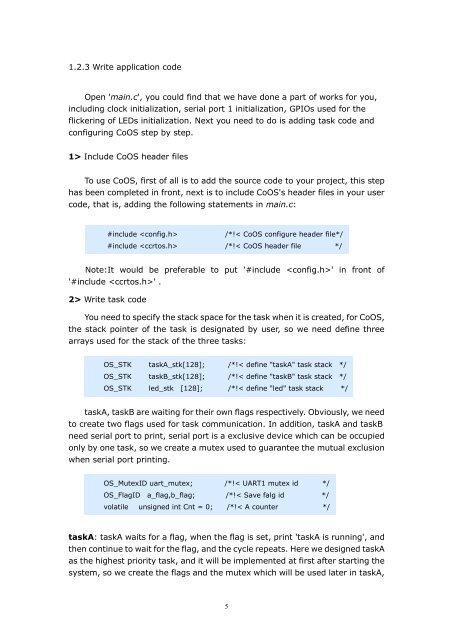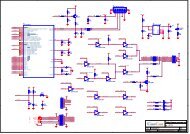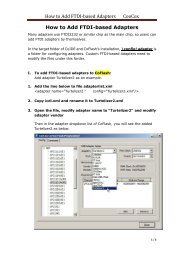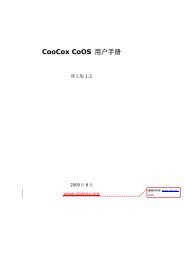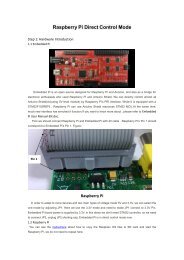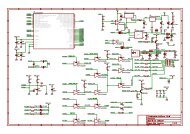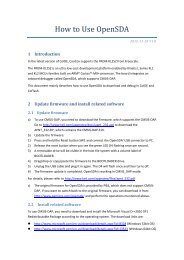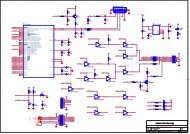CooCox CoOS User's Guide
CooCox CoOS User's Guide
CooCox CoOS User's Guide
Create successful ePaper yourself
Turn your PDF publications into a flip-book with our unique Google optimized e-Paper software.
1.2.3 Write application code<br />
Open 'main.c', you could find that we have done a part of works for you,<br />
including clock initialization, serial port 1 initialization, GPIOs used for the<br />
flickering of LEDs initialization. Next you need to do is adding task code and<br />
configuring <strong>CoOS</strong> step by step.<br />
1> Include <strong>CoOS</strong> header files<br />
To use <strong>CoOS</strong>, first of all is to add the source code to your project, this step<br />
has been completed in front, next is to include <strong>CoOS</strong>'s header files in your user<br />
code, that is, adding the following statements in main.c:<br />
#include <br />
/*!< <strong>CoOS</strong> configure header file*/<br />
#include /*!< <strong>CoOS</strong> header file */<br />
Note:It would be preferable to put '#include ' in front of<br />
'#include ' .<br />
2> Write task code<br />
You need to specify the stack space for the task when it is created, for <strong>CoOS</strong>,<br />
the stack pointer of the task is designated by user, so we need define three<br />
arrays used for the stack of the three tasks:<br />
OS_STK taskA_stk[128]; /*!< define "taskA" task stack */<br />
OS_STK taskB_stk[128]; /*!< define "taskB" task stack */<br />
OS_STK led_stk [128]; /*!< define "led" task stack */<br />
taskA, taskB are waiting for their own flags respectively. Obviously, we need<br />
to create two flags used for task communication. In addition, taskA and taskB<br />
need serial port to print, serial port is a exclusive device which can be occupied<br />
only by one task, so we create a mutex used to guarantee the mutual exclusion<br />
when serial port printing.<br />
OS_MutexID uart_mutex; /*!< UART1 mutex id */<br />
OS_FlagID a_flag,b_flag; /*!< Save falg id */<br />
volatile unsigned int Cnt = 0; /*!< A counter */<br />
taskA: taskA waits for a flag, when the flag is set, print 'taskA is running', and<br />
then continue to wait for the flag, and the cycle repeats. Here we designed taskA<br />
as the highest priority task, and it will be implemented at first after starting the<br />
system, so we create the flags and the mutex which will be used later in taskA,<br />
5


